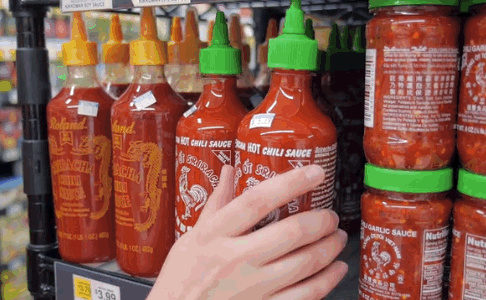IPL’s five billion dollar moment
Also in today’s edition: AI catches feelings; Web5 is a thing now; India’s WTO mission; Apple’s bank run
Good morning! Revlon is on the brink of bankruptcy. Blame supply chain problems and a heavy debt load. The cosmetics brand—which once had Cindy Crawford as an ambassador and was a force to reckon with until the aughts—witnessed its biggest one-day dip on Friday: its shares are trading at $2.05. Revlon couldn’t give itself a makeover even as brands report record sales due to pent-up demand.
🎧 Once a cosmetics giant, Revlon is filing for bankruptcy. Here's why.
The Market Signal*

Stocks: Benchmark indices slumped on Friday following fears of aggressive tightening by the Federal Reserve, which kicks off on Tuesday. The European Central Bank (ECB) confirmed it will raise interest rates next month, for the first time in 11 years. Shares of Vadilal Industries hit a record high of ₹2,139.
Early Asia: The SGX Nifty was down 0.93%. Hang Seng fell 2.43% and Nikkei 225 was trading 2.86% below its previous close at 7:30 am India time.
TECH
Apple Is The New Lender in Town

Apple Pay in 2014, Apple credit card in 2019, and now, a Buy Now Pay Later (BNPL) offering—the tech giant is going all out with financial services.
Many hats: An Apple user can now break down purchases into four payments every two weeks, with no fee or interest attached. What’s noteworthy here? Apple has decided to handle lending in-house through Apple Pay Later. This means the company’s subsidiary will give out loans, check creditworthiness and manage risks on its own.
Motives: But, Apple’s move is no surprise. The company has been dropping hints about its “breakout”. Cases in point: In March, Apple acquired UK-based credit reference agency Credit Kudos. And now, it is trying to use Apple ID data for identity verification and fraud prevention.
Can it ensure 100% privacy amidst this? It’s ambivalent, considering the latest instance: an Indianapolis woman tracked her boyfriend using AirTag and then killed him.
TRADE
India Brings The Fight To The WTO
The 12th WTO Ministerial Conference (MC) is underway in Geneva. On the line are patent waivers for Covid-19 vaccines, food security, fishing subsidies, and customs duties on e-commerce trade.
Why this matters: The MC is WTO’s premier decision-making body; its declarations shape multilateral trade agreements. This is the first conference since 2017, and it’s taking place against the backdrop of a pandemic, the Russia-Ukraine war, and economic upheavals. Protectionism is on the rise, and so are fissures between developed and developing countries.
Demands: India is at loggerheads with rich countries over minimum support prices and public stockholding for food security. It’ll pitch the WTO for a permanent solution to the 10% food subsidy cap. It wants foreign companies to pay customs duties for “electronic transmissions”, and for developing countries to have a 25-year exemption from fishing subsidy prohibitions (which are purportedly to save the environment); the last has not turned out well.
ARTIFICIAL INTELLIGENCE
Google And The Rise Of Sentient AI

A Googler placed on administrative leave has gone public with the explosive claim that an in-house AI chatbot generator is sentient.
What?: As an engineer in the Responsible AI division, Blake Lemoine tested LaMDA (short for Language Model for Dialogue Applications). LaMDA was launched as a “breakthrough conversation technology” unlike any other dialogue application. CEO Sundar Pichai announced his intention of integrating LaMDA into everything from Search to Workspaces.
Whoa: In a Medium post, Lemoine shared an edited chat with LaMDA. The AI not only seems to introspect, but declares that it’s a person with a soul. While experts rubbish claims of sentience, Google VP Blaise Aguera y Arcas (who also refuted Lemoine) has written about LaMDA’s strides towards consciousness.
The Signal
The LaMDA story isn’t so much about its sentience as it is about the human threshold for deciding whether an AI is sentient or not. AI experts point to the ELIZA Effect–the tendency to attribute human traits to AI models trained to imitate human exchanges.
This is an ethical issue because human assumptions and biases shape large language models. The “downstream effects” of human-mimicking AI is what Timnit Gebru and Margaret Mitchell had warned against before Google pushed them out. They’d also written about OpenAI’s GPT-3—the world’s largest neural network—generating “toxic” sentences because of exposure to banned subreddits and unreliable news sites.
Sentience is one thing. Whether Google should embed neural models in every service is another.
🎧 A suspended Google engineer claims that the company’s AI chatbot has feelings too. Find out what happened next.
BLOCKCHAIN
Wild Wild Web5
Jack Dorsey wants you to forget Web3. He's building a decentralised web platform—“Web5”— around Bitcoin. Why Bitcoin? Dorsey dreams of making it the ‘native currency for the internet.’
Say what?: Web5 is a vision for a decentralised (of course!) web. Going by the website, Web5 is an “extra decentralised web platform” that aims to give users control over data and identity, which is currently accessed by third-party companies.
Rewind: Sounds familiar to Web3? We don't blame you. But Dorsey isn’t a fan of Web3, having snubbed it for its glut of VC money.
In related news, Dorsey’s receiving his fair share of criticism as well. He teamed up with Jay-Z to launch a literacy project named The Bitcoin Academy; think free classes in NYC, headlined by Bitcoin influencers. Many critics are branding it a pyramid scheme. Ouch.
SPORT
BCCI's Big Payday Is Here

Sometime later today, the BCCI will tell us how much it earned from the sale of its marquee IPL media rights. Hint: a number north of $5.8 billion (₹43,000+ crore) at least.
State of play: RIP Bezos vs… Ambani headlines. With Amazon out, it's down to Sony (bidding as Culver Max), Zee, Disney, and Viacom18-Bodhi Tree.
Advantage Viacom: These rights come down to who wants it most. The build-up (Bodhi Tree’s $1.78 billion investment in Viacom18) was a giveaway.
Disney’s dilemma: We already told you about Disney’s dilemma. That said, its existing cricket portfolio (Indian cricket, ICC) isn't too bad.
The Sony-Zee mix: Two companies in the midst of a merger, bidding separately. Whether they have a rumoured pre-arrangement—Sony going hard for TV and Zee for digital—is unknown. But having saved up for this day, intent is not in question.
FYI
Upping the stakes: Official filings reveal that Tencent bought stake worth $264 million in Flipkart from co-founder Binny Bansal in October 2021. Elsewhere, Affle Global acquired an additional 13% stake in Indus OS, giving the company 60% voting rights and casting a shadow on PhonePe’s acquisition of Indus OS.
Mopping up 💰: Online eyewear retailer Lenskart has raised $28 million as part of a larger round. The latest infusion is by Avendus Future Leaders Fund II.
Surge: Maharashtra reported nearly 3,000 new Covid cases over the weekend, bringing the active tally in the state to 16,370.
AWOL: China’s top live commerce mega-influencers have gone dark after censorship crackdowns and questionable tax evasion charges.
Ramping up: India’s Competition Commission is reportedly setting up a “Digital Market Unit” which will specifically assess large technology companies’ behaviour in areas such as e-commerce.
FWIW

Woe be gone: There are fewer bottles of Sriracha hot sauce to go around in the US. The shortage could last for months. Blame it on the shortage of chilli peppers in Mexico due to extreme weather and supply chain snarls. In related news, Germany is facing a beer bottle shortage. Yes, supply chain crisis again! Breweries are asking patrons to return empty bottles.
East meets west: The Japanese kimono has gotten somewhat of a makeover. Once a traditional garment, designers have modernised it for fast fashion consumption. The traditional silks have given way to synthetics that are transformed into jumpsuits, shirts and scarves. Some others include Japanese erotic art to retain past connections.
Comeback: After exiting Russia, McDonald's is doing a U-turn. On Sunday, Russian locals will be greeted by a “new” brand. The golden arches will be swapped for a new logo comprising two fries and a patty against a green background (read: same same but different). The name? Vkusno i Tochka, which translates to “Tasty and that’s it”.
Update: In the market signal section of the newsletter, we mistakenly swapped two indices — Nifty and Sensex. We regret the error.
Want to advertise with us? We’d love to hear from you.
Write to us here for feedback on The Signal.



